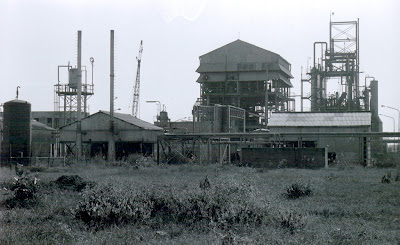Introduction
Bhopal, the capital of Madhya Pradesh, is a city where history, culture, and modern aspirations converge. Located in the heart of India, Bhopal has evolved over the centuries, shaped by its royal lineage, architectural brilliance, and a spirit of endurance. This blog post explores Bhopal's historical background, cultural richness, and its journey toward sustainable development and progress.
Historical Significance
The roots of Bhopal can be traced back to the 11th century when Raja Bhoj, a ruler of the Paramara dynasty, is believed to have founded the city. The name "Bhopal" is thought to have been derived from "Bhojpal," a combination of Bhoj and the dam (pal) he constructed.
Throughout its history, Bhopal came under the influence of various rulers including the Mughals and Marathas. However, a notable chapter began in the 19th century under the leadership of the Begums of Bhopal. These progressive women rulers focused on education, social welfare, and infrastructure—transforming Bhopal into a forward-thinking princely state.
The city's history also includes the tragic Bhopal Gas Tragedy of 1984, one of the worst industrial disasters in the world. A gas leak from the Union Carbide plant claimed thousands of lives and left long-term environmental and health repercussions. This tragedy brought global attention to issues of industrial safety and corporate responsibility.
Cultural Heritage
Bhopal boasts a diverse and rich cultural legacy. The city’s skyline features stunning Islamic architecture, with landmarks such as the Taj-ul-Masajid, one of Asia’s largest mosques. Structures like Shaukat Mahal and Sadar Manzil reflect Indo-Islamic and European influences, adding to the city’s unique architectural blend.
Just outside the city lies Bhimbetka Rock Shelters, a UNESCO World Heritage Site showcasing prehistoric cave paintings that date back thousands of years. These caves offer a glimpse into the lives of early humans and are a must-visit for history enthusiasts.
Traditional arts and crafts continue to thrive in Bhopal. From Zardozi embroidery to handcrafted beadwork and pottery, the local markets are treasure troves of artistic expression. Places like Chowk Bazaar and New Market are vibrant centers for shopping and cultural immersion.
Festivals in Bhopal reflect its composite culture. Events such as Urs, Diwali, Eid, and Navratri are celebrated with enthusiasm, fostering communal harmony and showcasing the city's inclusive ethos.
Resilience and Modern Progress
Despite past challenges, Bhopal has demonstrated remarkable resilience. The spirit of the people, particularly in the aftermath of the 1984 tragedy, reflects the strength and unity of the community. Over the years, the city has gradually rebuilt itself—focusing on health, education, and infrastructure development.
Bhopal is now emerging as a modern urban center. Its scenic Upper Lake and Lower Lake serve not only as ecological lungs but also as recreational hubs. The city’s layout and urban planning now incorporate environmental sustainability, with green zones and lakes integrated into residential and commercial areas.
Institutions like Indian Institute of Science Education and Research (IISER) and Bharat Heavy Electricals Limited (BHEL) play a significant role in defining Bhopal’s place in India’s technological and scientific landscape.
Modernity Meets Sustainability
Today, Bhopal continues to balance modern infrastructure with environmental stewardship. The Van Vihar National Park, located along the banks of the Upper Lake, is a shining example of urban biodiversity conservation. It offers residents a chance to experience wildlife within city limits.
Moreover, the city's efforts toward cleaner energy, smart urban infrastructure, and digitization have positioned it as a developing tech and education hub in central India.
Conclusion
Bhopal is more than just a city—it is a living story of survival, cultural harmony, and forward momentum. With a rich historical backdrop, thriving arts, and a focus on inclusive growth, Bhopal invites visitors to experience its charm and legacy firsthand. Whether you're exploring centuries-old caves or attending a tech seminar, Bhopal offers something for everyone.
As the city moves ahead, it carries with it the echoes of its past, the resilience of its people, and a vision for a sustainable future.
Disclaimer: This article is an original piece intended for educational and informational purposes. All historical references are commonly known and in the public domain. No part of this blog post is copied from copyrighted material. If referencing or quoting this article, please provide appropriate attribution.
.JPG)




 Pramod Pathak
Pramod Pathak







